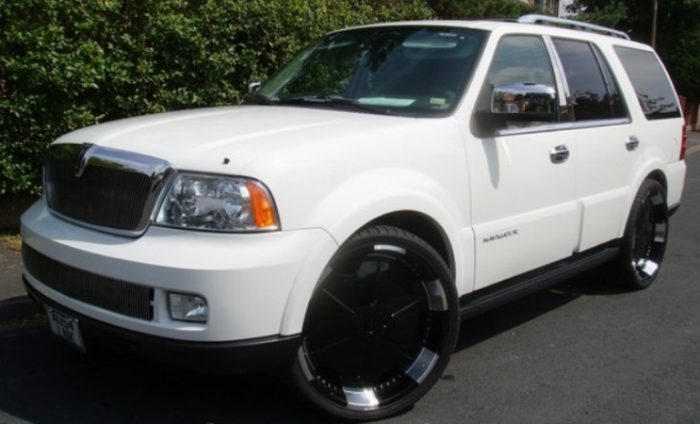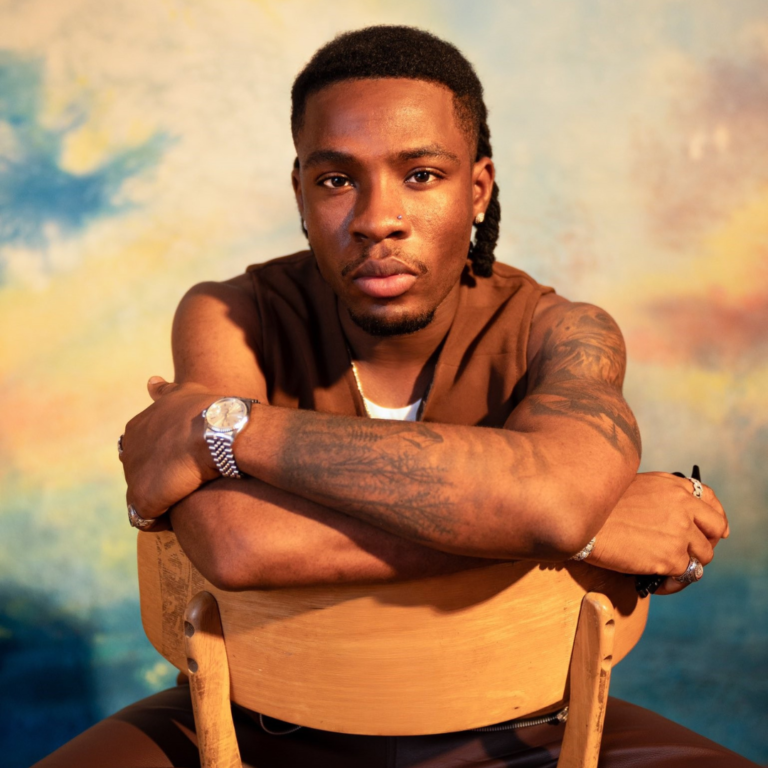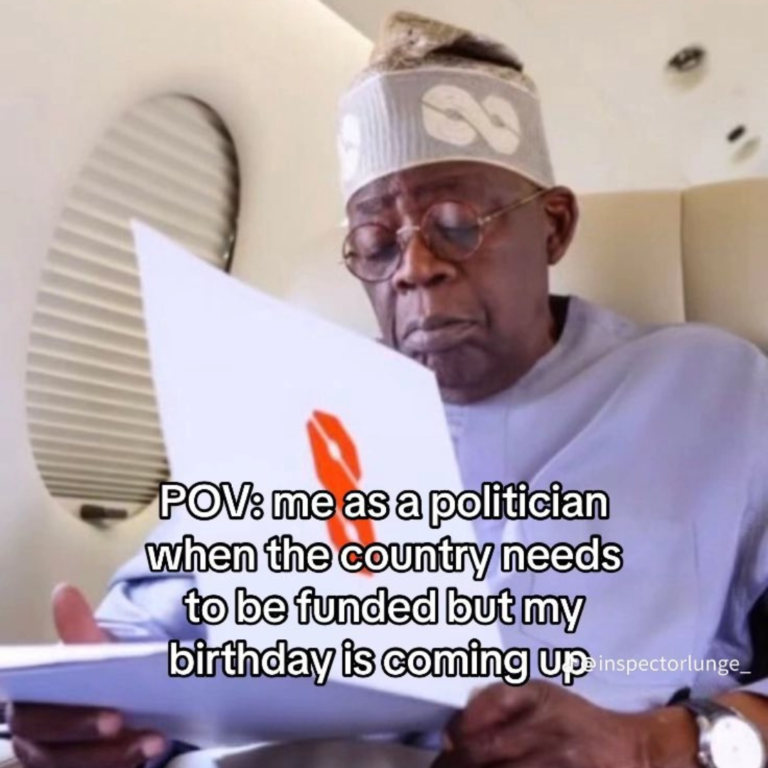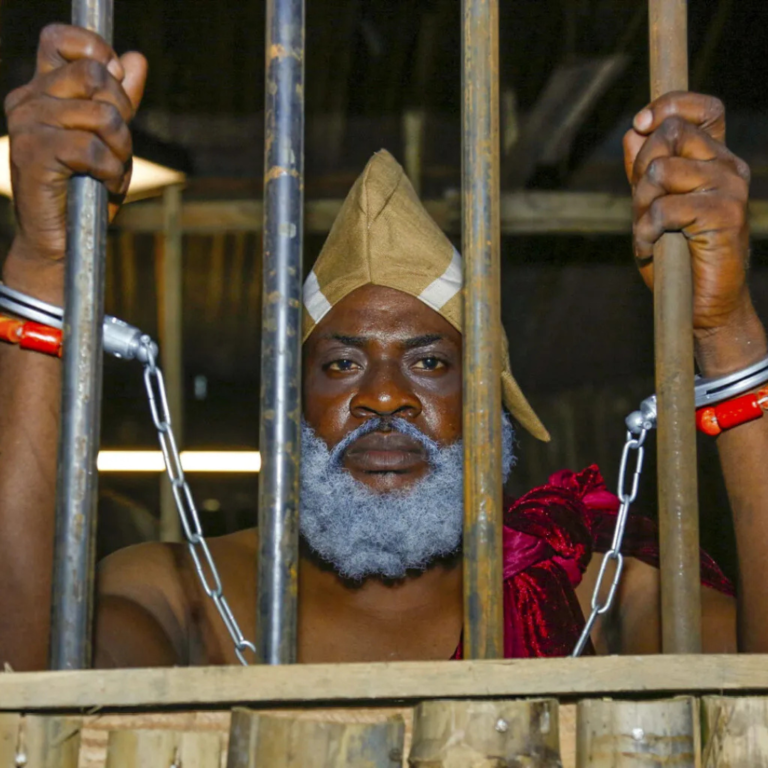It’s a travesty that Afrobeats doesn’t have a museum yet, but that’s where Zikoko comes in — to help us collectively fake it till we make it. To do this, we curated an Afrobeats museum with memorabilia of the music creators and executives who took Afrobeat and experimented with other African rhythms and Western sounds to form the modern Nigerian genre we know and love — Afrobeats
Relics from the founding fathers
Afrobeats is an offspring of Fela Anikulapo-Kuti and Tony Allen’s — the drummer who directed his band, Africa ‘70 for 11 years — 1970s Afrobeat.
A shrine of Fela’s favourite things
First of all, Fela’s iconic saxophones, pants and combs have to be in our museum — it was documented in Alex Gibney’s Finding Fela that he loved to spend time in front of the mirror, just combing and admiring his hair. Also, one of Fela’s favourite books, The Autobiography of Malcolm X by Alex Haley and Malcolm X, should be on a shelf somewhere.
Tony Allen’s drum sticks
Specifically, the ones he used on more than 30 Fela albums.
Afrobeats memorabilia
What Junior and Pretty wore in their album cover
The duo is considered one of the first to lay the foundation for an Afrobeats sound. On the artwork of the album, Tribute to Okechukwu Azike a.k.a “Junior” — which has their classic hit, Bolanle — they wore a Fulani attire that must be found and showcased in our museum.
Kennis Music’s Yellow Hummer
In the early 2000s, a Hummer was the top ride, and Kennis Music had one in yellow. Talk about iconic. It went on to become a video vixen for the many artists in the label’s roster.
2Face’s Lincoln Navigator
The car Kennis Music gifted 2Face after a successful debut album sale. This was also right after they bought their yellow Hummer. The Lincoln Navigator sparked controversy as many believed the artist who made the label so much money deserved his own Hummer. A Lincoln Navigator wasn’t a shit car sha.

Written history of Eedris Abdulkareem’s fight with 50 Cent
In 2004, 50 Cent headlined the Star Mega Jamz in Nigeria. At the concert, Eedris Abdulkareem felt local superstars were kicked to the curb for their foreign counterparts. He went at the American rapper, his crew and the show promoters about their seating arrangements, saying that local artists deserve the same special treatment.
When Eedris got on stage, he said, “50 Cent na oga for America. Me, I be oga for rap for Nigeria.” His actions changed how local artists were treated from then on. In 2023, Young Buck, rapper and longtime friend of 50 Cent, said he remembered a Nigerian dude who stood against their whole crew, and how scary it was.
Jaga Jaga music video
Eedris Abdulkareem was in the news a lot in the early 2000s. His hit song, Jaga Jaga, criticised the Nigerian government and was banned from radio by the then-president, Olusegun Obasanjo. The clubs never stopped playing it though, and Eedris is vindicated because Nigeria is still jaga jaga. The video should be on repeat at the museum.
The very-first Headies plaque
The Headies Awards is widely recognised as Nigeria’s biggest music award show today. The first version of the “headie” figurine was made of wood, and it should be on display right next to the current golden one, as an apt representation of how far the industry has come.
Zaaki Azzay’s torchlight and cap
The veteran rapper’s iconic silver torchlight and black and white skull cap have to make the cut.
DJ Jimmy Jatt’s turntable at Jimmy Jump Off
One of the pioneer disc jockeys in Nigeria, DJ Jimmy Jatt’s Jimmy Jump Off cypher was the launchpad for many Nigerian artists like Dagrin, Olamide, Burna Boy, Boogey and Laycon.
A “groups and cliques” section
The Afrobeats museum will have to have a section just for photos and videos of our most iconic groups: Junior and Pretty, Trybesmen, The Remedies, Plantashun Bois, Styl-Plus, Kush, Port Harcourt’s Tuck Tyght and Specimen A, P-Square, the list is surprisingly endless.
Alaba distribution
A history lesson on how Alaba Market in Lagos State changed the Nigerian music distribution game, exploring how Eldee and 2Shotz where the first Afrobeats artists to distribute through that channel.
ModeNine’s first rhyme book
ModeNine is the most decorated Headies “Lyricist on the Roll” winner so far. Flipping the pages of the super emcee’s first rhyme book to see his very first bars would be a cool-ass experience.
NBC’s radio play law
In 2010, the Nigerian Broadcasting Commission passed a law that made radio stations prioritise local music over the foreign ones that completely dominated the airwaves. The decision was a systemic way to prevent Nigerian music from taking a backseat in Nigeria. A physical copy of this law in a glass display case would be a great addition to the museum.
Don Jazzy’s walking stick from his Mo’Hits Era
He’s “Don” Jazzy for a reason. The music mogul moved like a Lagos Island mob boss with a walking stick during the Mo’Hits era. He had it with him every time. Back then, he never smiled, hardly spoke and only whispered if he had to speak. We wonder where he’s dumped that stick now.
Terry G’s first bell
Terry G, AKA King of Swagger, was known not only for his talent, face piercings or colourful dressing, but for ringing bells in his songs, videos and on stage. We want to see the bell that began his mission.
Naeto C’s Hausa caps
The rapper began a fashion trend when he arrived on the scene in t-shirts, jeans, sneakers and a Hausa cap. It was the ultimate cool swag of the late 2000s.
Wizkid’s 2018 O2 tracksuit
In 2018, Wizkid became the first African act to sell out the O2 Arena hall with his Afrorepublik show, his first big London show. And he effortlessly dripped in a Dolce & Gabbana tracksuit.
Tiwa Savage’s “King Charles coronation” gown
Call it our coloniser’s ceremony, but it’s a big deal for Afrobeats to permeate the British royal house in this way. And who best to call to give them a stunning performance of African rhythm than Tiwa Savage, the Queen of Afrobeats herself. She did it gloriously in this emerald green asooke dress that belongs in a museum.
A collection of iconic debut albums
The most impactful first albums that contributed to the Afrobeats movement should be on display. From 2Face’s Grass2Grace to P-Square’s Get Squared, Asa’s self-titled debut, Wande Coal’s Mushin2Mo’Hits, Wizkid’s Superstar and Rema’s Rave & Roses.
Legendary studios
Miniatures of the legendary Kennis Music studio (2Face, Eedris Abdulkareem, Tony Tetuila), ID Cabasa’s Coded Tunes studio (2Phat, 9ice, Lord of Ajasa, Olamide, Reminisce), Knighthouse, Mo Dogg’s studio and other places where the Afrobeats legends recorded their art.
Written history of the first labels to house Afrobeats
We broke this down in a six-minute read in 2023. An Afrobeats museum should have the history of early labels such as Storm Records, Trybe Records, Mo’Hits Records, Question Mark, Grafton Entertainment and Coded Tunes and their impact on the Nigerian music industry.
Printed lyrics
The lyrics of legendary Afrobeats songs like The Remedies’ Shakomo, 2Face’s African Queen, Wizkid’s Ojuelegba, can be printed on the walls. They’re the Afrobeats gospels.
Books of Afrobeats history
All the important books on the history of Afrobeats should be available in the Afrobeats museum. Everything from “E File Fun Burna” by Jide Taiwo to “Fela: This Bitch of A Life” by Carlos Moore.
Web3 digital gallery hall
As a movement that’s relevant in this hyper digital era, Afrobeats deserves a digital universe. Technology like this won’t only shift the paradigm for Afrobeats in the digital world, it’ll allow it to create, share and make profit.




